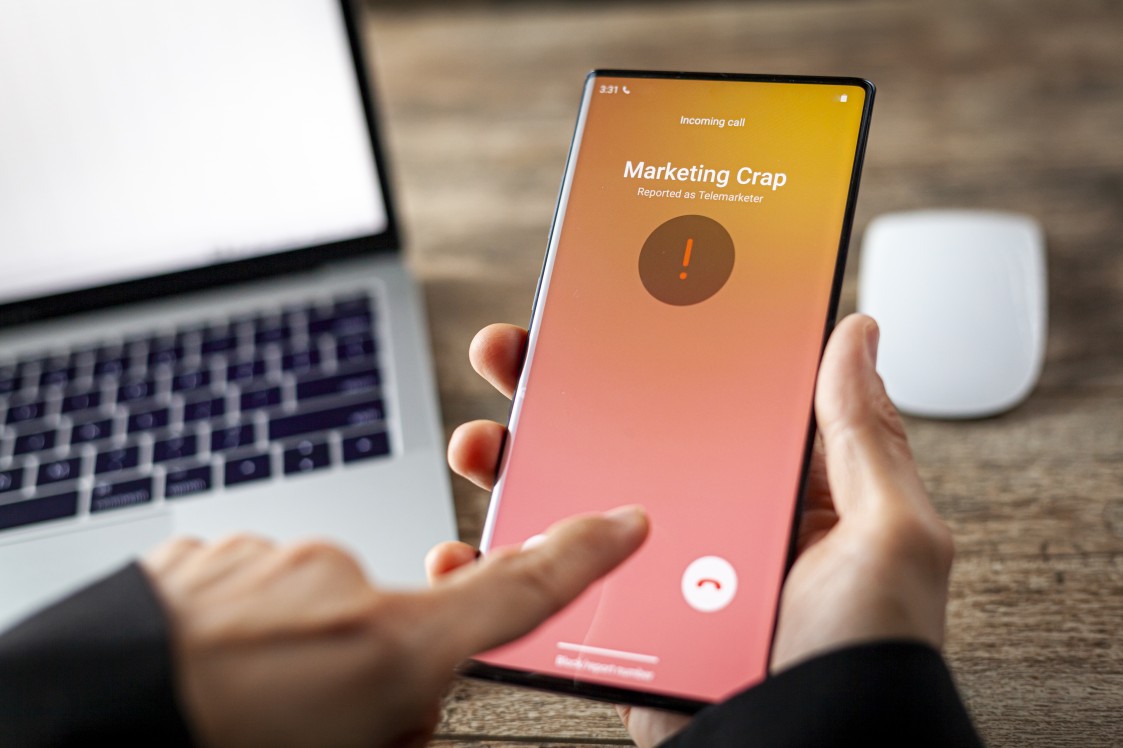Spam calls are more than just annoying – they often come at the most inopportune time. They used to come on our landline phones at dinner, but, since our mobile phone numbers have been released to telemarketers, we no longer seem to be able to escape the irritating – and illegal – calls.
According to experts, Americans received over 4.6 billion (yes, billion with a “B”) robocalls during the month of February 2021. While not every single call was a car warranty scam, the overwhelming majority fell in that category.
How do these nefarious individuals get your information, especially your cell phone number? Sometimes this is due to data breaches that you hear about on the news (certainly you’ve heard about the hacks into major banks such as Wells Fargo or Bank of America). Other times these scammers will go through the motor vehicle registration database in your state. New York state sells both driver license information and vehicle information via contract and pay-per-search venues. Scammers may also get your information through credit reporting companies and data accumulating firms. In addition, businesses can purchase lists of cell phone numbers online – and use the information to call you without your permission.
If you own a car and you have a phone number, you are likely to receive one of these calls. You can register with the National Do Not Call list to no avail; these scammers will still call. They do so by spoofing numbers (we’ll touch on that later). Furthermore, although the robocaller will state you can wait for an operator to have your name removed from the Extended Car Warranty call list, this step won’t stop the calls. In fact, when an individual speaks to the “operator” and asks to have his or her phone number removed from the call list, this verifies that you are a real person as well as verifying your phone number. That’s right – that means more scam calls to your number.
What Can I Do to Prevent these Scam Calls?
First, treat every number not in your contact list as if it might be a robocall. That means utilize your Caller ID, and, if you don’t recognize a number – even if it appears local – let the call go to voicemail. Previously, we mentioned the term “spoofing.” This is a technique scammers use to try to get you to answer the phone. Robocallers no longer strictly use 800 numbers – they now use numbers that may appear to be from a city or town in your state, hoping you’ll think it is an acquaintance and answer the phone. In fact, scammers have gotten so adept at their nefarious deeds that some consumers report getting calls that appear to be from a local business or a number they actually know – only to answer the phone to find that it’s another pesky robocall.
Keeping this is mind, use your Caller ID to screen all calls. Let all unknown numbers go to your voicemail. If it is a legitimate call, the individual will leave a message.
Now, with that said, there are a few scammers who count on you to do just that. They’ll leave a message, often for you to call them back at an 800 number. Some messages may be so convincing that you are tempted to call that number back. However, a simple Google search of the number will tell you if the number is a legitimate business. If the number left is not one associated with a dealership you know, then do not call back!
If you are unfortunate enough to pick up the phone only to hear “Hi! We’ve been trying to reach you regarding your car’s extended warranty . . .” simply HANG UP! Don’t wait for an operator and don’t press ANY buttons (i.e., “Press 2 to stop receiving calls . . .). Pressing a number or speaking with an operator can actually backfire on you as this lets the scammer know they’ve reached a legitimate person at a legitimate number. They’ll simply call you from another spoofed number.
Utilize the Apps in your Phone
You can download an app that blocks robocallers whether your phone is an iPhone or an Android. Some apps require a subscription, such as Robokiller. However, the small monthly subscription fee may well be worth your sanity.
Your iPhone also offers a setting in which unknown numbers will automatically be sent to voicemail with no effort from you. In your settings, go to “Phone” and scroll down, You’ll find “Silence Unknown Callers.” Be aware, however, this will send each and every number that is not on your contact list to voicemail. This can be an issue if a friend or family member calls you legitimately from a number you haven’t saved into your contacts (for instance, a family member is in the hospital and the doctor tries to call you; this number is not in your contacts, and the caller will be sent to your voicemail).
You can also block the numbers from which spam calls are made. This may be a little time consuming at first, but it will eventually cut down the number of spam calls you receive.
Add your Number to the Do Not Call Registry
This will not stop all the robocalls from coming in, but, when you report to the FCC that numbers are still calling you, companies are fined for violations. Keep in mind that charities and debt collectors are not bound by the DNC Registry.
The TCPA (Telephone Consumer Protection Act) fines telemarketers for every call or text to your cell made without your written permission. If you have been registered on the DNC list for at least 30 days and one of these companies contacts you more than once per year, the company will be fined between $500 and $1500.
File a Complaint with the FCC
If you have signed up for the Do Not Call Registry and you continue to receive phone calls, you can report the number to the FCC, who will launch an investigation into the matter. This will help the FCC to weed out scammers and hopefully lessen the occurrence of spam calls for all of us.
Yes, we are all irritated by those extended warranty calls, but there are actions you can take to lessen them for yourself and others as well






